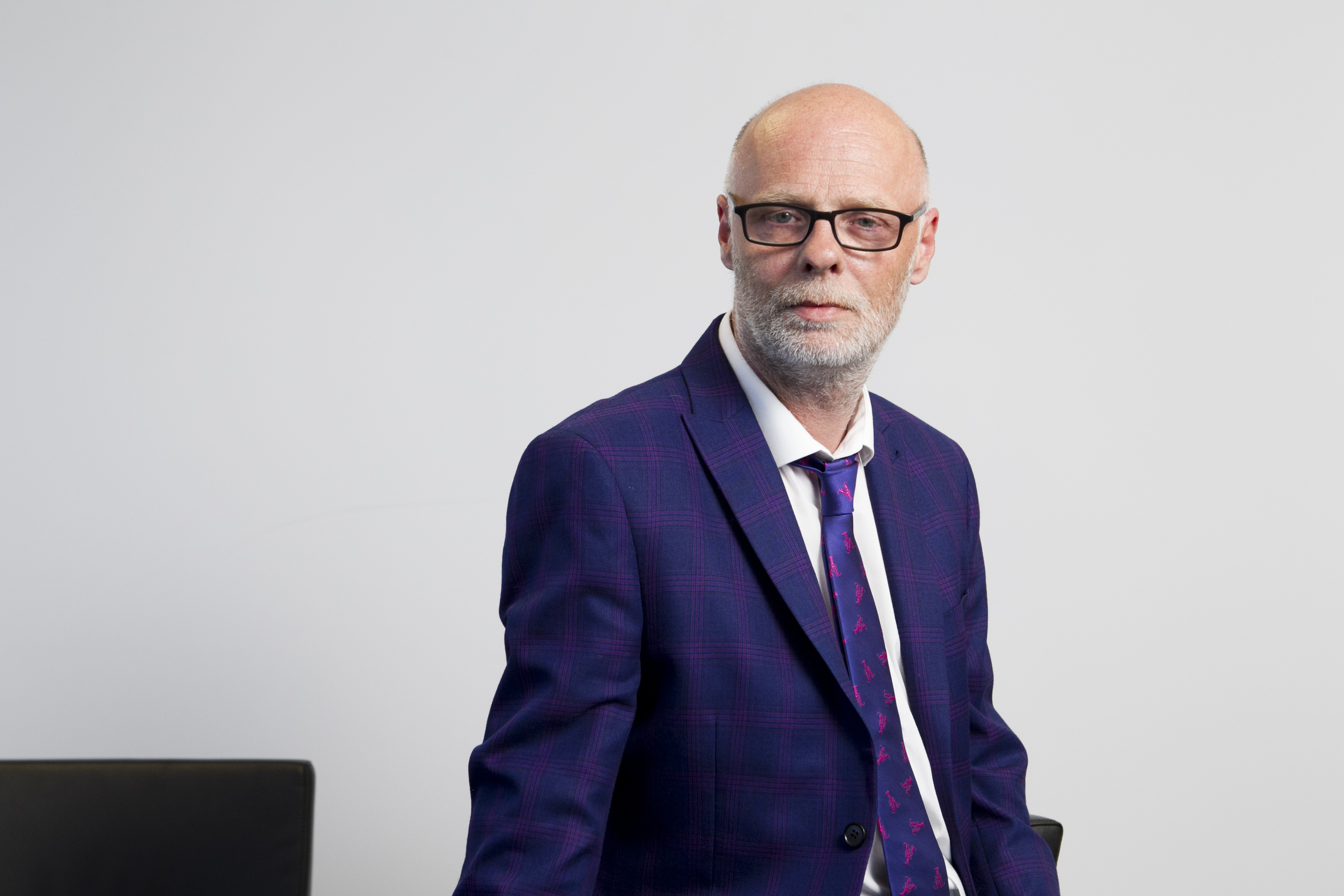
STEPHEN BROWN knows how children can be lost before they get a chance.
As he was an orphan, his adoption by a loving family gave him a great start in life.
Now working to ease the impact of poverty, addiction and crime on the lives of children living in some of Scotland’s poorest postcodes, he is tireless in his efforts to give other youngsters the chance he was given.
Appointed director of North Ayrshire Social Care Partnership in April 2017, he has driven a pilot scheme, sending specialist teams of psychologists and social workers into two schools in Irvine.
Since the intervention in Greenwood Academy and Elderbank Primary, no children from those schools have been taken into care or referred to the Children’s Reporter, the government body with responsibility for protecting children at risk. Stephen said: “That is a major step forward on two fronts and we have been able to divert the £3.5 million per year it was costing us if children from that area entered the system.”
Instead, the cash is being spent on nurses in the schools who identify health issues. It has also funded psychology services, family liaison teams and a “campus cop”.
Beyond the school gates, in another unique pilot scheme, social workers in an area with the sixth-highest domestic abuse record in Scotland have been taken out of their offices and seconded to Kilmarnock Police station. Officers investigating alleged abuse work with the social workers to offer immediate help. The scheme, which also involves women’s charity Scottish Women’s Aid, has drastically reduced the number of children adversely affected.
Stephen said: “I never forget that behind every statistic is a human being. We are dealing with lives, not numbers. I was an orphan and adopted as a young boy. I was incredibly lucky to have grown up in a family where I was very much loved and encouraged.”
But the revolutionary, who spent years as a frontline social worker, witnessed the pitfalls of children being swallowed up by a “system” that was taking too long to deliver care and support to the people who needed it.
Stephen said: “We’d spent decades in a system that, in so many ways, just wasn’t working. We decided to try something new. Different agencies were doing their own thing. Now, we’re working in a team without boundaries, sharing knowledge and expertise. Instead of writing endless reports, we find solutions, all of us working together to make things better.”
Early intervention within and beyond the school gates is a battle on two fronts.
Stephen said: “It would once have been an anathema to ask a social worker to work out of a police station. Our teams have made a radical change.”
North Ayrshire has been at the forefront of Social Care Partnerships, allowing innovative schemes to exist, and the moves to recognise period poverty by introducing free sanitary products in secondary schools.
They pioneered the removal of council tax for children in care until they reach the age of 26 and attempts to ease fuel poverty by establishing cheaper “white label” suppliers.
Stephen may be delighted by the giant steps forward but he is under no illusions as to the scale of the problems faced by North Ayrshire.
Just over a week ago, North Ayrshire was found to have the highest number of avoidable deaths, at 373 in 100,000.
Stephen said: “Here, life expectancy can differ by up to 20 years for people living just a few miles apart.
“Cuts of £12 billion in welfare, has had a huge impact on families already really struggling.
“The welfare system is now so complex, the most vulnerable genuinely just can’t cope. When foodbanks are more common than branches of Marks & Spencer, it’s a sad indictment of where we are today.
“In some areas, we have some of the highest child poverty rates in Scotland. That affects their chances in later life so we need to nurture and encourage educational achievement.
“However, I’m pleased to say our advice team, money matters, last year managed to access £8.2m in unclaimed benefits for local families.
“When you see lives changing, there’s no better feeling in the world.”

Enjoy the convenience of having The Sunday Post delivered as a digital ePaper straight to your smartphone, tablet or computer.
Subscribe for only £5.49 a month and enjoy all the benefits of the printed paper as a digital replica.
Subscribe